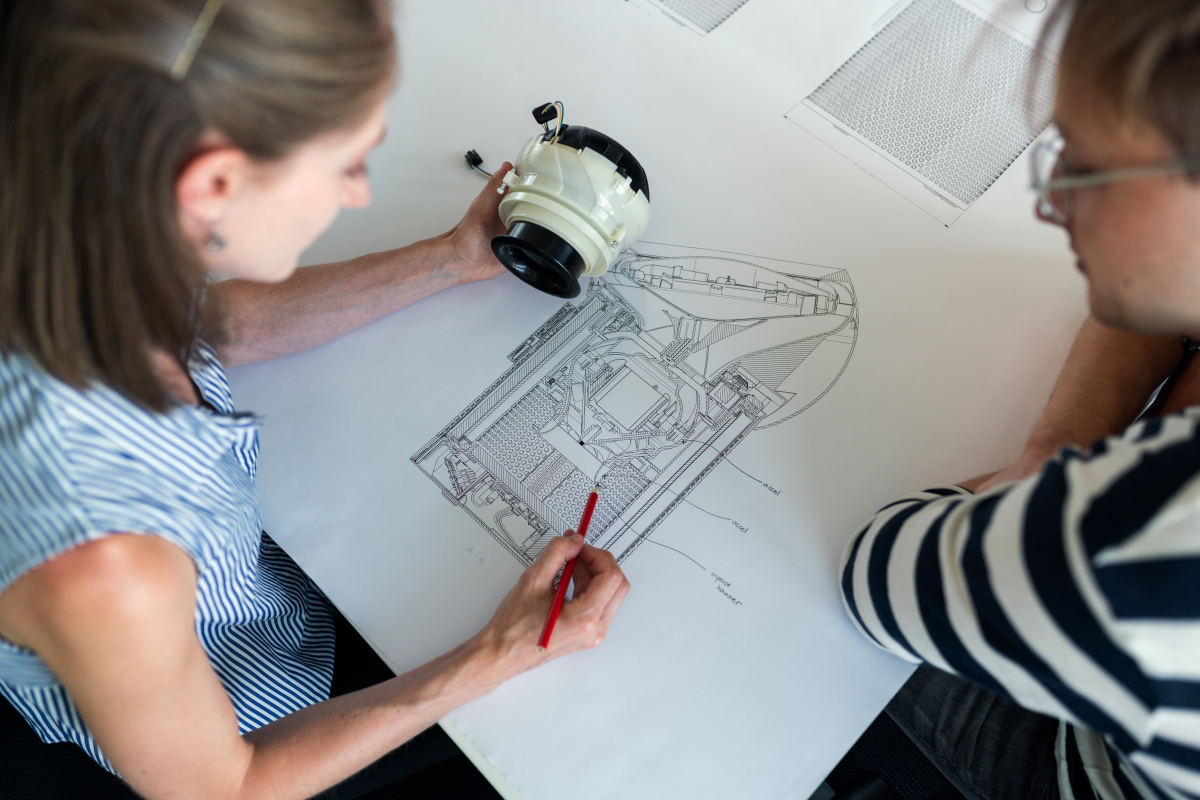Why should early career researchers be thinking about commercialisation?
While many research projects are run from start to finish within university labs, there are plenty of additional benefits and opportunities unlocked by working with industry. Certain types of investigations are difficult or even impossible to run without researchers from the two sectors sharing resources. We’ve put together a quick guide giving an overview of the benefits of working with industry to commercialise research, what this can mean for early career researchers, and some tips on the best approach.
Innovative research arises from the exchange of knowledge and expertise
University-industry collaborations can be a valuable insight into the high expectations and rigorous standards of industry, which differ significantly from academic labs. A collaboration or placement with a company can provide access to new resources, expertise, and approaches to conducting research – an experience that can be valuable in many ways career-wise, including the opportunity to make useful connections for future collaborations.
Collaborations with industry drive publications and increase research impact
Much of the research done with industry leads to publication. In 2019, the Times Higher Education reported on a study which found that half of the journal articles from industry-based research groups in the USA were a result of university-industry collaborations, and that these elicited higher citation rates than those of university researchers alone. Added to that, integrating a discovery into a real-world, everyday application or solution delivers positive impact for society.
Rapidly translate research into real-world applications
Research projects can be progressed more quickly through industry collaborations. But also, translating university research into real-world applications can be vital, as the COVID-19 situation has shown, in which industry has played a critical role in deploying solutions and treatments.
Location isn’t a limiting factor
Now more than ever, the location of the company or university is irrelevant through the ease of communicating online. This was echoed in the results of a survey we ran with industry R&D teams that use IN-PART in 2019, in which only 6% of 63 respondents said location was a determining factor when evaluating a new academic partner.
Industry collaborations unlock funding opportunities
Collaboration with industry is increasingly being encouraged by research councils and research assessment frameworks, and having an industry partner with different yet complementary capabilities is a great way to create interesting and application-driven research proposals. There are also plenty of joint funding opportunities available for commercially-focused research.
Collaboration can take a variety of forms to suit the research
Forms of collaboration can include testing or validating an early breakthrough, exploring new research avenues with facilities or equipment not immediately accessible at an institute, prototyping and scaling up, or simply exchanging expertise. Industry sponsorship of standalone PhD and postdoctoral projects is well known, as well as long-term strategic partnerships and fulfilling consultancy roles for industry or with cultural projects.
Technology transfer offices (TTOs) are there to help you
Most research-intensive universities and institutes have an office that’s responsible for protecting intellectual property developed within their university and commercialising it in a way that generates impact from the research and derives a financial return for the institute and the teams behind it. TTO staff are there to help manage patent applications, negotiate licensing deals and research agreements, create spin-out companies, and market new technologies.
TTOs want more engagement from early career researchers
In a survey we ran at the start of 2020, we asked the TTOs that use IN-PART how they identify research from their university to showcase to industry. The primary method is through project submissions from academics. We also found a clear signal that TTOs want more engagement from early career researchers.

Industry collaboration and commercialisation opens doors
An industry collaboration could make the crucial difference between a lab’s research being boosted and perhaps commercialised for the benefit of society, or the opportunity being abandoned for other time-consuming academic priorities. In addition, the time investment from ECRs has valuable career benefits, in terms of commercial skills development and the others associated with industry collaborations. What’s more, a successful industry partnership could prove valuable for future research proposals or even direct industry funding for the lab.
Where to start?
Early career researchers usually work for and with senior researchers and PIs, but there are often cases where ECRs are significantly contributing to or leading the research direction. There are no rules preventing ECRs from initiating an engagement with their university’s TTO and taking responsibility for submitting to them, even if PIs will still be involved.
Be proactive. Talk to your PI about incorporating appropriate commercialisation aims for your project or research at an early stage to ensure you can be working towards them. Find your university’s technology transfer office to learn more about commercialisation, and start a conversation with them about your work. Many TTOs offer training courses and funding to support commercialisation. The usual first step is to submit a brief outline of your research and its potential applications for the TTO to assess. Have a look around at the market area for your work – is there a gap your research can fill or a solution that it could deliver?
Written by Sharon Gill. Edited by Ruth Kirk and Alex Stockham.
Copyrights reserved unless otherwise agreed – IN-PART Publishing Ltd., 2021: ‘Why should early career researchers be thinking about commercialisation?’
About IN-PART:
We believe brilliant connections can solve real-world problems. We match research pioneers from academia with decision-makers in industry sectors striving for a greater positive impact.
Our goal is to enable connections from around the world to match academic research with industry on a level playing field. Through our intelligent, matchmaking platform we showcase leading university innovations and connect academics with an international community of decision-makers in industry, creating meaningful dialogue and partnership.
IN-PART, a digital partnering platform for university-industry collaboration.
250+ universities and research institutes around the world currently showcase their research and innovation on IN-PART to find new collaboration partners in industry. R&D teams get free access to the platform (create an account here). There are no hidden costs and we don’t claim downstream success fees.
Discover, a bespoke scouting service for open innovation.
Through Discover, corporate R&D teams can leverage our extended academic network, which reaches multiple teams across 1,200+ universities and research institutes worldwide. In response to a specific research requirement or challenge, Discover enables R&D teams to identify new opportunities for commercialisation or to solicit proposals for new research.
Interested in speaking with our Discover team? Request a demo | TTO or academic? Sign-up for weekly Discover emails.

Image credit: ThisisEngineering RAEng / Unsplash Licence

